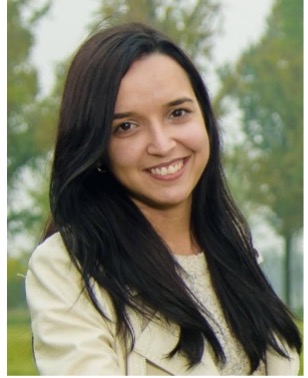Speakers

Daylín Góngora, Postdoctoral Researcher, SBE
Daylín Góngora is a Postdoctoral Researcher at the School of Business and Economics at Maastricht University. Her research explores the psychology and neuroscience of decision-making, with a particular focus on the neural basis of prosociality and reciprocity. She is currently investigating how background uncertainty influences prosocial behavior, examining its impact on three key neural networks involved in social decision-making: the reward valuation network, the cognitive control network, and the theory of mind network. Her work intends to highlight the interplay between cognitive and affective processes in shaping prosocial decisions. To unravel these complex mechanisms, she employs a multidisciplinary approach that integrates behavioral experiments, physiological measures such as skin conductance responses and fMRI studies.
Title: Selfish when stressed? Preliminary results on behavior and physiology.
Abstract:
Background uncertainty—uncertainty beyond an individual's control—has been shown to affect prosocial behavior by weakening social preferences and reducing compliance with social norms, ultimately diminishing solidarity within society. In this study, we use electric shocks of varying intensities and probabilities as a proxy for background uncertainty. Participants engage in a Dictator Game, where they allocate experimental currency while facing different costs of giving across trials. Our primary objective at this stage is to validate our experimental design, which is based on a modified No Predictable, Predictable, Unpredictable (NPU) threat paradigm.
Dr. Christian Herff, Assistant Professor, MHeNs/FHML
Dr. Christian Herff is an assistant professor in the Mental Health and Neuroscience Research Institute at Maastricht University where he leads the invasive BCI research line. His research interest lays in the application of machine learning technology to neurophysiological data for Brain-Computer Interfaces and neuroscience research. With a particular focus on the decoding of speech processes from intracranial data, he tries to improve the lives of severely paralyzed patients while simultaneously improving our understanding of complex higher order cognition. He emphasizes the ability to achieve interpretable results based on computational models. In particular, visualization of complex dynamic models, such as deep neural networks, is of interest to him.
Title: Decoding Arbitrary and Informed Decisions from Intracranial Recordings in Humans
Abstract
Ideally, decisions are made based on prior knowledge, which allows for informed choices. Real life, however, often requires us to make decisions arbitrarily, without sufficient information. Decoding decision making processes from neural activity could allow for cognitive neuroprostheses and Brain-Computer Interfaces (BCIs) to support decision processes in rapid human-machine interactions, weigh decision-making confidence, and further enable neuromodulation protocols for the treatment of reward-related dysfunctions. To understand the differences between the decision-making processes in arbitrary and informed decisions, we recorded intracranial electroencephalography in a large number of cortical and subcortical areas from 5 patients during a categorization task.
CIN symposium 7 april
 Registration website for CIN symposium 7 april
Registration website for CIN symposium 7 aprilCIN symposium 7 aprilsecr-mhens@maastrichtuniversity.nl
CIN symposium 7 aprilsecr-mhens@maastrichtuniversity.nlhttps://www.aanmelder.nl/164849
2025-04-07
2025-04-07
OfflineEventAttendanceMode
EventScheduled
CIN symposium 7 aprilCIN symposium 7 april0.00EUROnlineOnly2019-01-01T00:00:00Z
Maastricht UniversityMaastricht UniversityMinderbroedersberg 4-6 6211 LK Maastricht Netherlands

